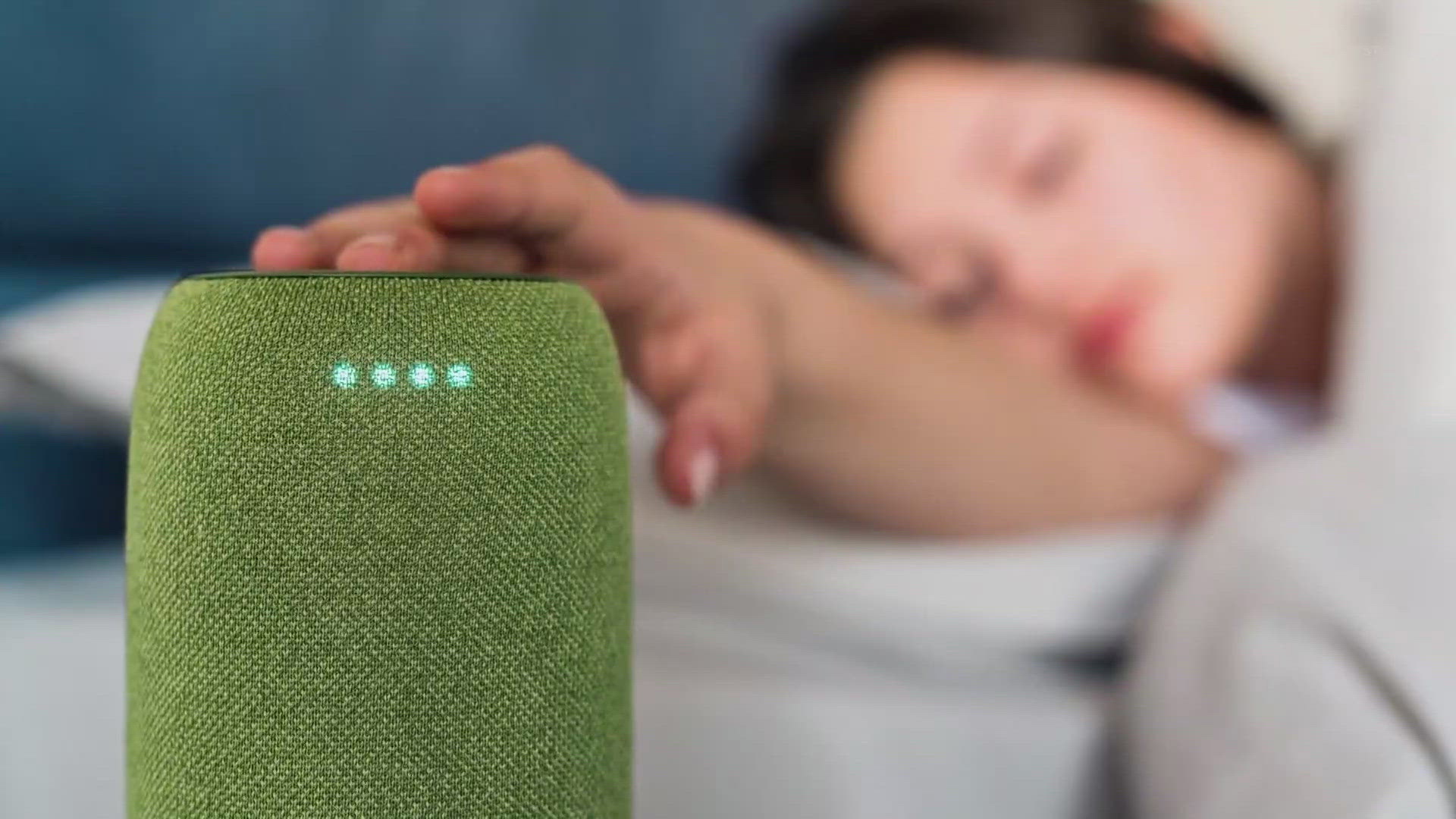SEATTLE — Many people opt for "white noise" devices to get a better night's rest overall, but are they safe to use all night, every night?
What used to be a nuisance — a snowy screen indicating a bad antenna or TV signal—now serves a very different, very popular purpose: falling asleep.
"So by definition, white noise is a sound that contains all frequencies at equal intensity," said Dr. Brandon Peters-Mathews, a neurologist at Virginia Mason Franciscan Health who specializes in sleep disorders.
And people like the sound of it.
"White noise" machines used as sleep aids have boomed in popularity, with some global market estimates valued at just over a billion dollars in 2024.
"It's often used to mask our environmental noise, and so, it can help to improve sleep and may help to mask sounds that might otherwise disturb sleep," Peters-Mathews said.
He said such devices are great at drowning out surrounding noise—things like a snoring partner, a child in the next room, or outside traffic sounds.
But is a white noise device or app safe for chronic, long-term use, and could there be any cognitive impacts? Peters-Mathews said the nature of white noise's continuous, "even" sound should make it okay.
What's not okay is if the noise is too high, especially for young children.
"So the safe decibel level for white noise in babies is less than 50 decibels, which is equivalent to a quiet refrigerator or a gentle rainfall. So it's fairly quiet," Peters-Mathews explained. "For adults, we generally like to keep it under 70, so more sustained above 70."
He says anything higher, at sustained levels, can lead to hearing loss over time.
Peters-Mathews also notes such noise devices might not necessarily ensure quality sleep.
"I would say for most people it's not gonna have that kind of an effect. I think it's really more the masking effect where it benefits sleep, rather than enhancing the depth of sleep," he said.

